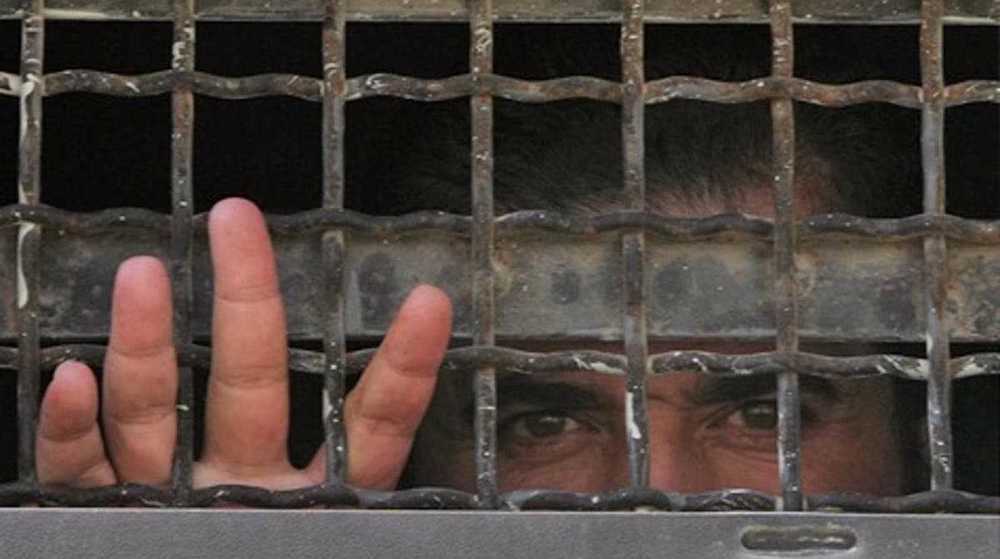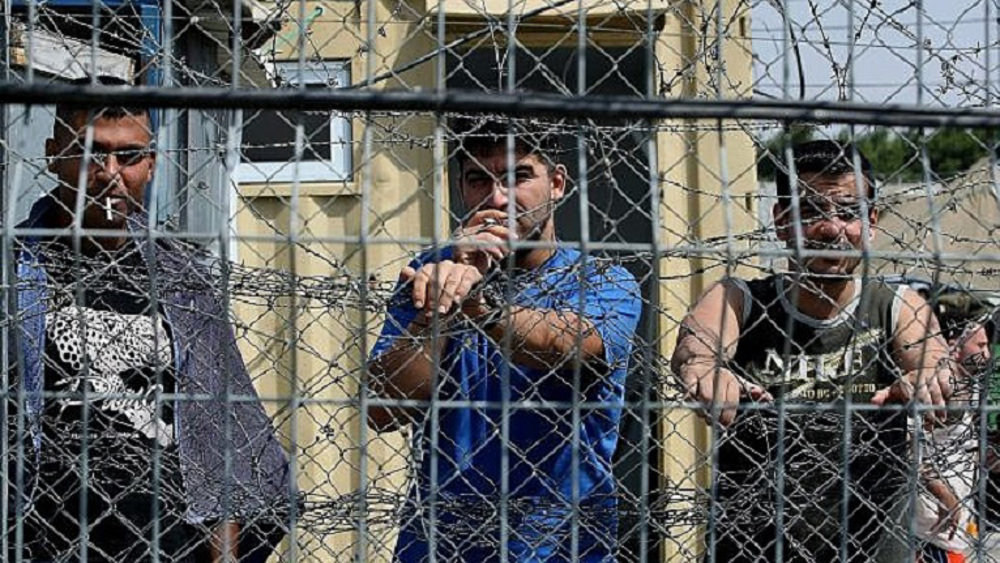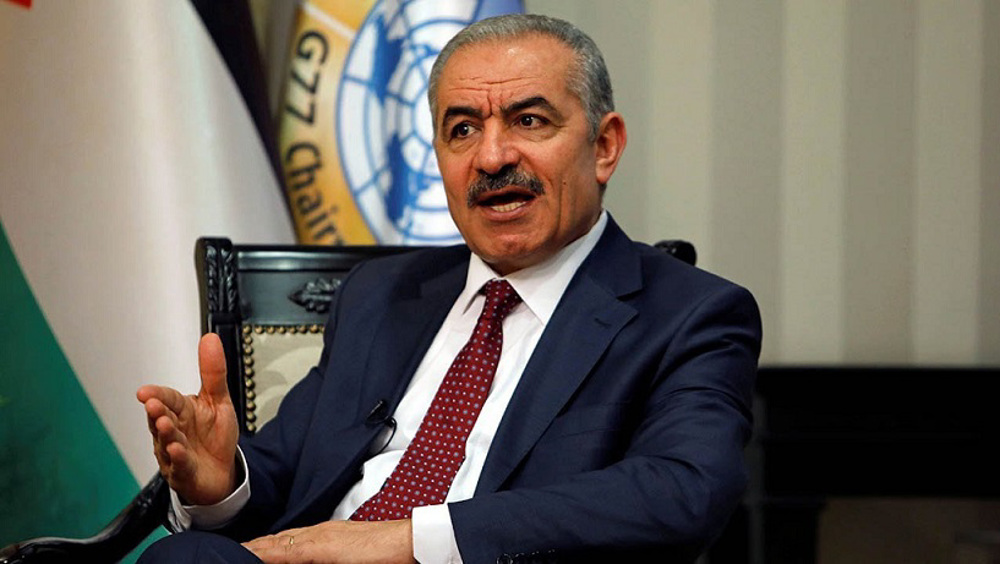Arab League warns against Israel's disregard for lives of Palestinian prisoners
The Arab league has warned the Tel Aviv regime against "dangerous repercussions" of violating the very basic rights of hunger-striking prisoners and other Palestinian inmates languishing behind Israeli bars.
In a statement released on Sunday, Saeed Abu Ali, the bloc's assistant secretary-general for Palestine and the occupied Arab territories, denounced the Israeli regime for constantly disregarding "the right to life and humanitarian legal standards" for Palestinian prisoners incarcerated in Israeli jails.
Israel must end unlawful and cruel policies such as "slow-death policy" towards Palestinian prisoners, the statement read.
Abu Ali called on international rights organizations "to exert more pressure on the Israeli authorities to comply with the provisions of international law".
He also said that advocacy groups were closely monitoring the health condition of two hunger-striking Palestinian prisoners Ghadanfar Abu Atwan and Iyad Harbiyat.
The duo had stopped eating their food portions weeks ago and several groups continue to express serious concerns over their deteriorating health conditions.
Elsewhere in the statement, the official further held the Israeli authorities fully responsible for their lives.
Abu Atwan’s health condition has seriously deteriorated and is at risk of dying from malnutrition after 61 days of hunger strike in protest of his administrative detention without charge or trial.
Harbiyat, who was detained in 2002 and sentenced to a lifetime in jail, suffers from a major deterioration in his health.
The Israeli Prison Service (IPS) keeps Palestinian prisoners under deplorable conditions lacking proper hygienic standards in Israeli jails.
The prisoner rights groups assert that the Israeli IPS maintains a systematic policy of medical negligence toward Palestinian detainees.
There are reportedly more than 7,000 Palestinians held at Israeli jails. Hundreds of the inmates have been apparently incarcerated under the practice of administrative detention.
The Palestinian inmates regularly stage hunger strikes in protest at both the administrative detention policy and harsh prison conditions.
Administrative inmates in Israeli jails say going on hunger strike is one of their few options to make their voice heard and force Tel Aviv to end this illegal policy.
The Israeli parliament, Knesset, has already approved a law which made way for Israel’s prison officials to force-feed hunger strikers if their condition becomes life-threatening.
Critics say Israel uses the policy of administrative detention to silence the voices of Palestinians but lacks any concrete evidence that could be presented in an open, military court. Palestinians say administrative detention is a whole other level of injustice.
Rights groups describe Israel’s use of administrative detention as a “bankrupt tactic” and have long called on Israel to bring its use to an end.
According to figures by the Defense for Children International, between 500 and 700 Palestinian children at the age of 12-17 are also arrested and tried in Israeli military courts every year.
Israeli forces arrested more than 17,000 minors since 2000.
Nov. 23: ‘Axis of Resistance’ operations against Israeli occupation
Lindsey Graham threatens to sanction US allies backing ICC arrest warrants
VIDEO | Tens of thousands of Catalans protest to demand access to better housing
Israel launches air strikes on Syria-Lebanon border crossing
Russia: Comprehensive deal with Iran will include defense, security ties
VIDEO | Israeli embassy shooting in Jordan leaves gunman dead, 3 police injured
VIDEO | Paris march in support of Palestine women
VIDEO | ICC issues arrest warrants for Israeli prime minister, ousted regime war minister





















 This makes it easy to access the Press TV website
This makes it easy to access the Press TV website